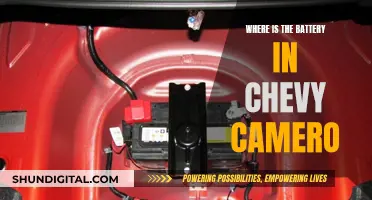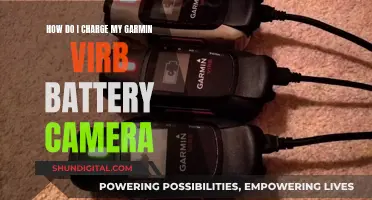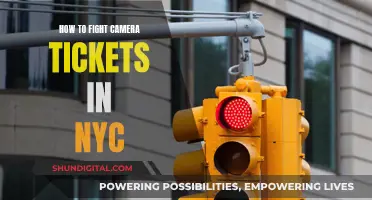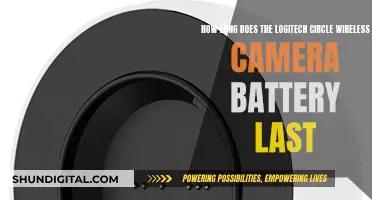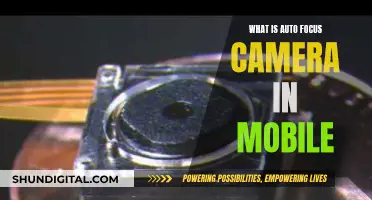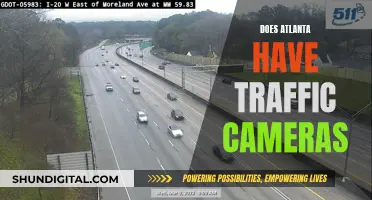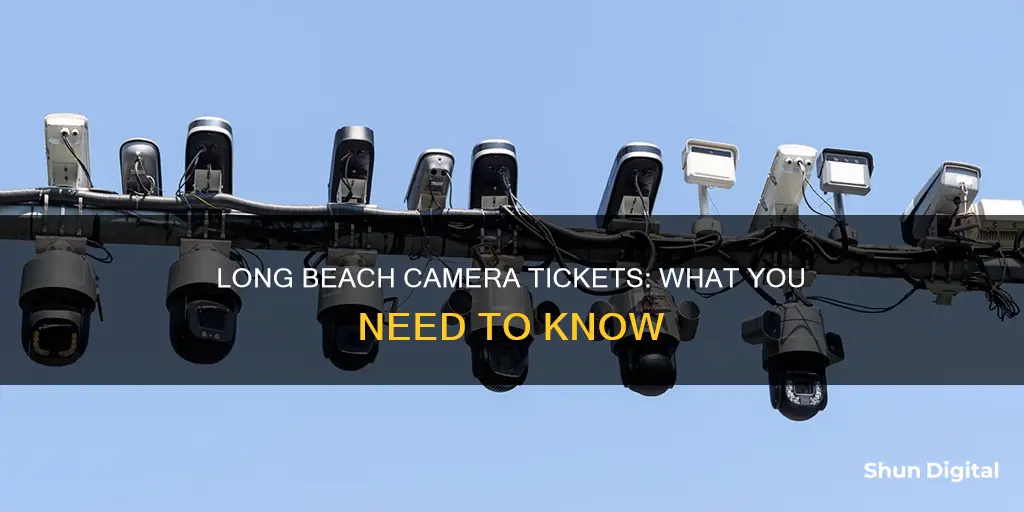
Long Beach, California, is set to install speed cameras in 18 locations across the city. The cameras will be placed in school zones, areas with a high rate of accidents, and spots that receive frequent complaints about speeding and other driving hazards. The cameras will be implemented on a pilot basis, with the goal of improving road safety and reducing speeding. The city's traffic officials are working on a report to outline the locations of the cameras, the rationale behind the chosen locations, and the expected costs of the program. The public will be notified at least 30 days before the cameras are operational, and for the first 60 days, violators will receive warnings without fines. Fines will range from $50 to $500, depending on the speed exceeded.
| Characteristics | Values |
|---|---|
| Location | Long Beach, California |
| Camera Type | Red light cameras, speed cameras |
| Purpose | Enhance traffic safety, reduce violations, prevent accidents |
| Installation Sites | MTA railroad crossings, school zones, accident-prone areas, speeding hotspots |
| Ticket Cost | $50-$500 based on speed limit exceeded |
| Enforcement | Citations similar to parking tickets, no points added to driver's license |
| Revenue Usage | Cover program costs and fund traffic safety improvements |
| Pilot Duration | Cameras can be relocated or removed after evaluating effectiveness |
What You'll Learn

Speed cameras are coming to Long Beach
The law sets out various requirements, including rules for notifying the public, the cost of fines, and criteria for where "speed safety systems" can be located. The number of cameras allowed in Long Beach is based on the city's population.
The city's preliminary map of eligible locations includes school zones, areas with a high rate of accidents, and "hot spots" that have received recent complaints about speeding, street takeovers, and other hazards. City traffic officials are currently working on a report detailing where the cameras will be placed, why those locations were chosen, and how much the program is expected to cost.
Before the City Council can approve the report and solicit bids from camera vendors, the report and a list of policies must be made public for 30 days. The public must also be notified at least 30 days before the cameras start operating, and for the first 60 days, violators will receive warnings without fines.
Once the cameras are in place, they won't necessarily be permanent fixtures. The city can relocate them in certain circumstances, and after five years, the city must write a report evaluating the program's effectiveness.
The introduction of speed cameras in Long Beach comes as part of a broader effort to enhance traffic safety and reduce violations. It is hoped that these measures will help prevent accidents and improve overall road safety for all users.
Are Camera Batteries Safe for Flying?
You may want to see also

Locations of speed cameras in Long Beach
Long Beach, California, is set to install speed cameras in 18 locations across the city. While the exact locations are yet to be confirmed, the cameras will be placed in school zones, areas with a high rate of accidents, and "hot spots" with frequent complaints about speeding, street takeovers, and other driving hazards.
The city's traffic officials are working on a report detailing the chosen locations, the rationale behind them, and the expected costs of the program. This report will be made available to the public for 30 days before the City Council can vote to approve it and solicit bids from camera vendors.
Some possible locations for speed cameras, as suggested by residents, include:
- 7th Street, between Termino and PCH, and from the 710 to the 22.
- Cherry Street, from Ocean to Willow.
- Livingston Street, between 1st Street and 2nd Street. This area, in particular, has been described as a "drag strip," with people often racing and reaching speeds of up to 80 mph in a 35 mph zone.
- The intersection of Wardlow and Los Coyotes, which has been described as dangerous and the site of frequent accidents.
- The intersection of Studebaker and Los Coyotes, where people often run red lights.
In addition to these locations, there are also speed cameras installed near MTA railroad crossings in Long Beach to enhance traffic safety, reduce violations, and prevent accidents.
Charging Camera Batteries: Refuel's Quick and Easy Guide
You may want to see also

Fines for speeding in Long Beach
Long Beach is set to install speed cameras in 18 locations around the city, with residents able to suggest where they will be placed. The speed cameras are part of a state bill that was signed into law in October 2023, which allows Long Beach and five other cities to install speed cameras on a pilot basis to improve street safety.
The law sets out a number of requirements, including rules for notifying the public, the cost of fines, and criteria for where "speed safety systems" can be placed. The number of cameras allowed in each city depends on its population.
The city's preliminary map of eligible locations includes school zones, areas with a high rate of accidents, and "hot spots" that have received recent complaints about speeding, street takeovers, and other hazards.
Once the locations have been decided, the public must be notified at least 30 days before the cameras start operating. For the first 60 days, violators will receive warnings without fines. After this period, fines will range from $50 for going at least 11 mph over the speed limit, to $500 for driving at least 100 mph. These citations will be similar to parking tickets and won't add points to a driver's license.
Any revenue generated from the fines will be used to cover the costs of the program and for further traffic safety improvements. The cameras won't be permanent fixtures, and the city must write a report after five years evaluating the effectiveness of the program.
Unveiling the Highest-Resolution Camera: Unmatched Clarity and Detail
You may want to see also

The legality of camera tickets in Long Beach
Camera tickets are legal in Long Beach, California. Speed cameras and red-light cameras have been installed in various locations across the city to enhance traffic safety, reduce violations, and prevent accidents.
Speed Cameras
Long Beach is one of six cities in California that have been authorised to install speed cameras on a pilot basis. The state bill allowing this was signed into law in November 2023, with speed cameras expected to be placed in 18 locations across the city at some point in 2024.
The exact locations of the speed cameras are yet to be finalised, but a preliminary map from the city shows school zones, areas with a high rate of accidents, and "hot spots" with frequent complaints about speeding and other driving hazards as eligible locations.
Once the locations are chosen, the public must be notified at least 30 days before the cameras start operating. For the first 60 days, violators will receive warnings without fines. After that, fines will range from $50 for going 11 mph over the speed limit to $500 for driving at least 100 mph. These citations will be similar to parking tickets and won't add points to a driver's license.
Red-Light Cameras
In addition to speed cameras, Long Beach also has red-light cameras installed near MTA railroad crossings. These cameras are in place to ensure safety and compliance with traffic laws.
It's important to distinguish red-light cameras from regular traffic cameras, which are located on top of traffic lights and are used only for monitoring traffic flow. Red-light cameras, on the other hand, are positioned on the side or corner of an intersection and can issue photo-enforced tickets.
The Evolution of Camera Technology: Advancements and Innovations
You may want to see also

The effectiveness of speed cameras in Long Beach
Long Beach, California, is one of six cities in the state that has been authorized to install speed cameras on a pilot basis. The goal of this initiative is to improve street safety by encouraging drivers to reduce their speed. Speed cameras are expected to be placed in 18 locations around the city, including school zones, areas with a high rate of accidents, and spots that receive frequent complaints about speeding and other driving hazards.
The implementation of speed cameras in Long Beach has been a response to the rising number of traffic deaths in recent years. City leaders and residents have advocated for measures to enhance road safety, and speed cameras are seen as a potential solution to deter speeding and reduce the risk of accidents. The cameras will be installed and operated following specific requirements outlined in the state bill.
Additionally, once the speed cameras are operational, the city is mandated to issue only warnings without fines for the initial 60 days. After this period, fines will be imposed, ranging from $50 to $500, depending on the severity of the speeding violation. Notably, these citations will not add points to a driver's license and will be similar to parking tickets. The revenue generated from these citations will be allocated to cover the program's costs and fund traffic safety improvements.
While some residents express concerns about financial hardship due to tickets, others believe that speed cameras will positively impact driving behavior and make the streets of Long Beach safer for everyone. The city is committed to evaluating the effectiveness of the program by writing a report after five years of implementation, which will help determine the long-term viability of the speed cameras.
Understanding FE2 Camera's Battery Functionality
You may want to see also
Frequently asked questions
Yes, Long Beach has speed cameras and red light cameras.
The cameras are placed in 18 locations around the city, including school zones, areas with a high rate of injury accidents, and "hot spots" with frequent complaints about speeding and other driving hazards.
The fines range from $50 for going at least 11 mph over the speed limit to $500 for driving at least 100 mph.


